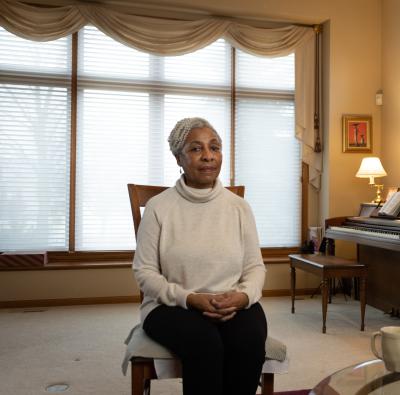Across the country, state governments and redistricting commissions are redrawing voting maps that will determine representation for the next 10 years. Campaign Legal Center (CLC), along with a majority of American voters, believe independent redistricting commissions (IRC), rather than legislatures, should draw maps, in order to stop...
Earlier this year, Campaign Legal Center (CLC) filed a complaint with the Office of Congressional Ethics (OCE), requesting an investigation into possible violations of federal law and House rules by Rep. James “Jim” Hagedorn.
Hagedorn’s campaign appears to have occupied rent-free office space for more than seven years, possibly constituting an...
Campaign Legal Center (CLC) filed a complaint with the Federal Election Commission (FEC) against former Missouri Gov. Eric Greitens (R) for the allegedly illegal spending of over $100,000 of leftover funds from a state-level gubernatorial campaign account to finance the startup costs of his ongoing U.S. Senate campaign.
The complaint, filed on Oct...
A poll commissioned by Campaign Legal Center (CLC), Protect Democracy, Issue One and RepresentUS showed strong bipartisan support for updating the Electoral Count Act (ECA), a 19th century law that provides the primary legal framework for casting and counting electoral votes, including Congress’ role in the process.
The poll highlights the serious...
Ethics investigations of members of Congress continue to show a trend of more lawmakers trying to block investigations into their alleged misconduct. From 2009 to 2020, approximately one third of lawmakers investigated by the Office of Congressional Ethics (OCE) did not cooperate with the investigation, according to cases that are public.
In...
Campaign Legal Center (CLC) has written the White House to provide recommendations on steps the president can take to promote access to voting. Following Congress’ failure to advance the Freedom to Vote Act last week, presidential action is all the more crucial.
The letter follows up on President Joe Biden’s March 2021 executive order to...
In the first congressional insider trading investigation to become public in recent history, the Office of Congressional Ethics (OCE) found evidence that the day after Rep. Mike Kelly (R-PA) received nonpublic information about Cleveland-Cliffs Inc., a company based in his district, his spouse bought stock in that same company.
By the time Kelly’s...
Earlier this year, Campaign Legal Center (CLC) filed a complaint with the Office of Congressional Ethics (OCE) against Rep. Tom Malinowski for allegedly violating the Stop Trading on Congressional Knowledge (STOCK) Act.
Now, just over seven months later, the OCE has found, "substantial reason to believe" there was a violation and taken the rare...
Congress needs to act to make the promise of democracy more real for us all by getting rid of deliberate barriers to voting, preventing partisan gerrymandering and stopping secret money — otherwise known as dark money — from pouring into our elections. American voters should feel that they have an equal voice in our political system.
On Oct. 20...
Last month, a federal court ordered the Federal Election Commission (FEC) to take action on allegations that the National Rifle Association (NRA) violated federal campaign finance laws. The order, which gave the recalcitrant agency 30 days to comply, is significant, because it makes clear that the FEC cannot abdicate its obligation to enforce...
The U.S. Senate has introduced an updated version of the John Lewis Voting Rights Advancement Act, (S.4), which incorporates the Native American Voting Rights Act (NAVRA) of 2021.
This important legislation will help reduce the barriers Native Americans face to participation in the U.S. political process, giving them an increased opportunity to...
Our country’s campaign finance system is increasingly plagued by corruption and a lack of accountability. This is due in large part to dysfunction at the Federal Election Commission (FEC), the federal watchdog agency charged with administering and enforcing campaign finance laws relating to races for the U.S. House, Senate, vice presidency and...
Trevor Potter, Campaign Legal Center’s (CLC) president and founder, who has served as chairman of the Federal Election Commission (FEC), and Donald Ayer, deputy attorney general under former President George H.W. Bush, who is now a senior advisor on CLC's litigation strategy council, published an op-ed in The Hill about the lesser-known provisions...
Campaign Legal Center (CLC), on behalf of its client the League of United Latin American Citizens (LULAC) and the Colorado LULAC, has submitted a brief and presented oral argument to the Colorado Supreme Court, urging the court to reject the congressional redistricting commission’s adopted map because it violates the Colorado Constitution’s strong...
Campaign Legal Center's (CLC) challenge to the Kansas law H.B. 2332 was before District Judge Kathryn H. Vratil in the case VoteAmerica v. Schwab on Friday, Oct. 8, 2021. Pro bono counsel from Simpson Thacher & Bartlett presented oral argument, seeking to stop enforcement of the Kansas law.
This law restricts the distribution of mail ballot...
Campaign Legal Center (CLC) has launched a new feature on PlanScore.org with a library. Visitors have access to analyses of noteworthy redistricting maps proposed around the country scored using various fairness metrics, as well as links to raw files and authoritative sources. PlanScore.org is an empowerment tool to measure voting maps and evaluate...
Campaign Legal Center (CLC) filed complaints with the Office of Congressional Ethics (OCE) against three members of the U.S. House of Representatives – Reps. Mike Kelly (R-PA), Gwen Moore (D-WI) and Seth Moulton (D-MA) – urging the OCE to investigate whether these members violated House rules governing the personal use of campaign funds.
At...
The U.S. Senate is pursuing legislation that would protect Americans from racially targeted attacks on their freedom to vote. On Oct. 5, 2021, the U.S. Senate introduced the John Lewis Voting Rights Advancement Act, otherwise known as S. 4 or the VRAA, a bill that would amend and restore the Voting Rights Act of 1965 (VRA).
S. 4 would preserve...
Thousands of North Louisiana voters finally received a long-awaited answer to a yearslong struggle to vote in person on Sept. 23, 2021. The Caddo Commission approved an additional early voting location in the parish.
The approval of the early voting location came after years of advocacy which culminated with organizations, including the Campaign...
Senate Democrats have introduced the Freedom to Vote Act, a compromise alternative to the For the People Act, that introduces sweeping new measures to promote voter access, end partisan gerrymandering, increase campaign finance transparency and reform federal elections in a number of other ways.
The partisan gerrymandering ban introduced in the...
The United States District Court for the District of Columbia issued an order, instructing the Federal Election Commission (FEC) to take action within 30 days on long-pending administrative complaints against the National Rifle Association (NRA) for using shell corporations to coordinate campaign spending with federal candidates on Sept. 30, 2021. ...

